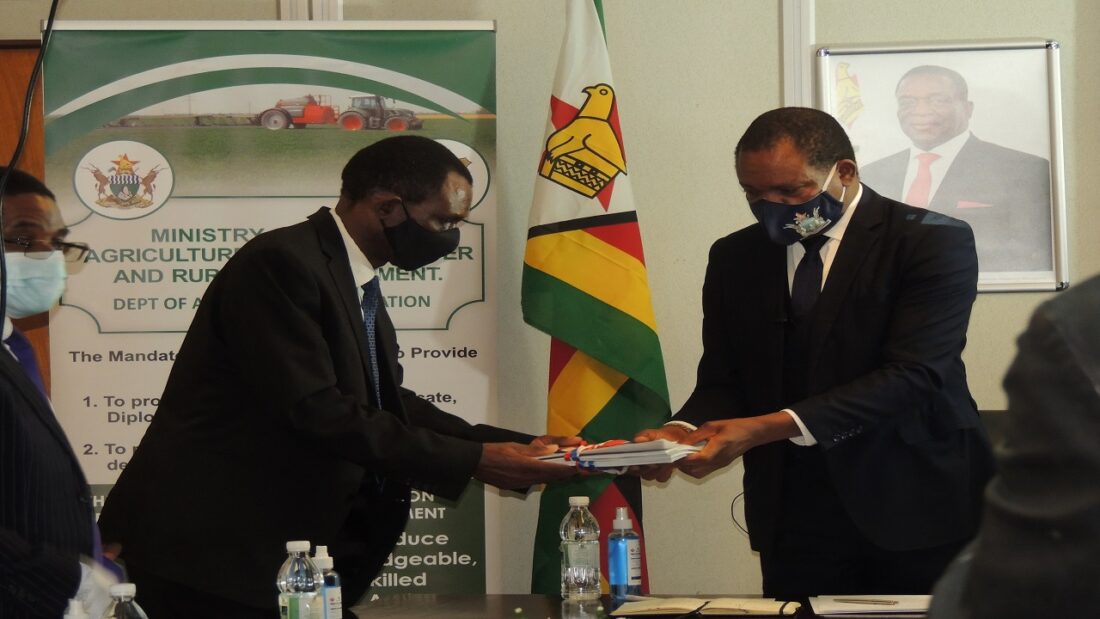Government has today launched the 5.O agricultural curriculum in agricultural collages a project expected to go beyond training and extension by mixing business advisory services, research, innovation and entrepreneurship aspects.
Compulsory courses like motor cycle riding and corporate governance are expected to be part of the curricula.
The 5.0 curricular will be focused on problem solving skills that will see agricultural students participating in developmental projects. The program is also meant to expose students to modern farming equipment with an overall aim of improving the Zimbabwean economy through the agricultural sector.
Speaking at the launch in Harare, Minister of Lands, Agriculture, Fisheries, Water And Rural Development Dr Anxiuos Masuka said that previously agricultural colleges have been producing graduates who were not fully suited to the modern agriculture hence the government saw it fit to introduce 5.0 curricular which is expected to instill knowledge and transform the agricultural sector across the country.
“Agricultural colleges have continued to produce graduates ill suited for this new need, focusing on production of training and extension service graduates instead of deliberate farmer-centric and business-orientated advisory service graduates, for a new land reform dispensation, steeped in the college’s display of unique entrepreneurial excellence, radiating into the surrounding communities, and acting as epicenters of agricultural transformation. It is this context that the transform Zimbabwe agricultural college education system is long overdue.
“Vision 2030 of an empowerment and prosperous upper middle income income society, eloquently enunciated by the President, requires a new education paradigm as agriculture is at the core of rural development and rural transformation to power the improvement of livelihoods,” he said.
Meanwhile, Permanent Secretary for Lands, Agriculture, Fisheries, Water And Rural Development Dr John Basera added that the 5.0 curricular was going to add on what was missing in the Zimbabwean agricultural sector and provide students, farmers and scientists with the right attitude, knowledge base and skill set in the practice of agriculture.
The curricular system will focus on business advisory, research, innovation and entrepreneurship whilst creating graduate entrepreneurs capable of transforming agriculture and set up agricultural enterprises which will create employment to the dynamic agricultural landscape and value chain.




